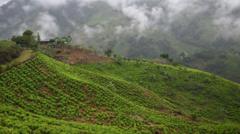Kurdish communities in northeastern Syria express skepticism about the new government formed after civil unrest, primarily due to past conflicts and external influences.
Kurdish Concerns Rise Over New Syrian Government Integration

Kurdish Concerns Rise Over New Syrian Government Integration
The Kurdish-led forces in northern Syria show reluctance toward joining a new national army, rooted in historical distrust.
In the aftermath of the Syrian civil war, as the new rebel-led government aims to unite various armed factions into a cohesive national army, significant challenges remain, particularly in the northeast region predominantly governed by the Kurdish minority. The recent arrangement for the integration of Kurdish-led forces into this new military structure has been met with deep skepticism among local communities, reflecting a heritage of conflict and distrust.
During recent interviews conducted across the region, Kurdish residents voiced their concerns stemming from historical tensions, particularly due to the former rebels' past associations with extremist groups such as Al Qaeda. Many Kurds are particularly apprehensive about the influence of Turkey in backing the new government, which has a history of undermining Kurdish aspirations for autonomy.
One resident, Amina Mahmoud, a 31-year-old from Kobani, conveyed the widespread sentiment, asking, "How can we trust this new government in Damascus?" Her skepticism resonates throughout the diverse ethnic and religious communities in the region, many of whom fear that their rights and representation might not be safeguarded under the new regime.
This atmosphere of mistrust underscores the complexities facing the newly formed Syrian government as it attempts to unify a fractured nation, with the Kurdish population representing a significant challenge in the pursuit of stability and national unity. As the situation unfolds, the question remains whether reconciliation and mutual understanding can be achieved amidst a backdrop of historical grievances and external pressures.






















